In 2 weeks, we met 35 companies, mostly Chinese (26). This list includes Naura Tech and Will Semi in the technology sector, Xiaomi, Bilibili, Tencent Music, Trip.com, and Alibaba in the communication sector, BYD Electronics, Shenzhen Megmeet, Haitian Intl, Ningbo Oriental Wires & Cables, Zhejiang Sanhua, Goneo Group, OPT Machine Vision, Jiangsu Hengli, CIMC Enric among industrials, New Oriental Education, Atour, Tingyi and Imeik in the consumer sector, Wuxi Bio/Apptec and Shenzhen Mindray in the healthcare sector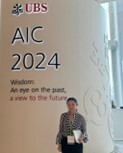 .
.
We have also met 3 Taiwanese companies (Vanguard, Realtek, KYEC), all in the tech sector, 2 Korean companies (KB Financial, Samsung Life), 2 companies from ASEAN (Siam Cement and Jollibee Foods), and 1 Indian company (Eicher Motors).
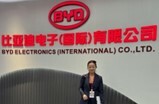
Overall, our exchanges with Chinese companies suggest that the business sentiment remains lackluster, and a cautious view is to stay for this year amid a soft macro environment. The increased policy support in May, especially in property (government could now act as the buyer of last resort) and fiscal (government bond issuance hitting a new high since 10/2023) seems reassuring on downside protection. But as per housing transactions expert Ke Holding, more measures are necessary to convince homebuyers amid falling home prices and weak income prospect. For industrials, domestic demand trend remains diverged with external demand and EV being the only key 2 drivers of industrial production. Players such as Jiangsu Hengli, Haitian Intl, Zhejiang Sanhua, OPT Machine Vision are cautious on domestic demand and are stepping up their overseas investments or accelerating their ramping up. This compared to a very confident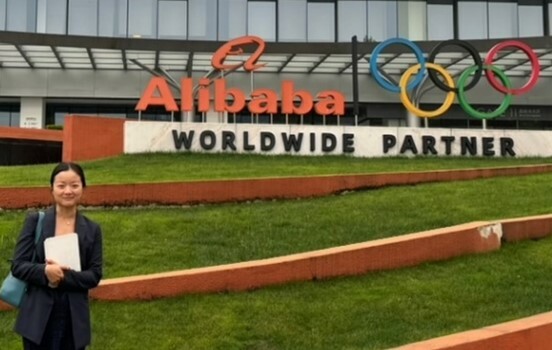 tone adopted by the management of China semiconductor equipment manufacturer Naura Tech which enjoys “the best market ever” and “excellent visibility” thanks to the megatrend of “national support + localization”. Meanwhile, consumer sector is affected by general consumption downgrade and a more “value-for-money” focused middle class. Nonetheless, Trip.com, Tencent Music, and New Oriental Education are confident in the sustainability of their growth backed by structurally improved penetration.
tone adopted by the management of China semiconductor equipment manufacturer Naura Tech which enjoys “the best market ever” and “excellent visibility” thanks to the megatrend of “national support + localization”. Meanwhile, consumer sector is affected by general consumption downgrade and a more “value-for-money” focused middle class. Nonetheless, Trip.com, Tencent Music, and New Oriental Education are confident in the sustainability of their growth backed by structurally improved penetration.
The mood is much more optimistic with Taiwanese technology companies. Vanguard suffers from Chinese competition 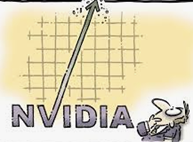 and weights its options related to its new 12’’ fab investment, but the management remains very confident on growth prospect thanks to clients’ localization (from China). IC testing service provider KYEC feels very excited about revenue opportunities related to Nvidia Blackwell ramp-up. As for Realtek, an IC design house specializing in communications networks, computer peripheral and multimedia ICs, ongoing spec upgrade driven by technology migration is a powerful tailwind.
and weights its options related to its new 12’’ fab investment, but the management remains very confident on growth prospect thanks to clients’ localization (from China). IC testing service provider KYEC feels very excited about revenue opportunities related to Nvidia Blackwell ramp-up. As for Realtek, an IC design house specializing in communications networks, computer peripheral and multimedia ICs, ongoing spec upgrade driven by technology migration is a powerful tailwind.
Company focus: Xiaomi Corporation (Market Cap: $58bn, sales revenue: $46bn)
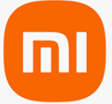 While many Chinese corporates kept their cautious stance due to a still-weak macro environment, the management of consumer electronics and smart manufacturing leader
While many Chinese corporates kept their cautious stance due to a still-weak macro environment, the management of consumer electronics and smart manufacturing leader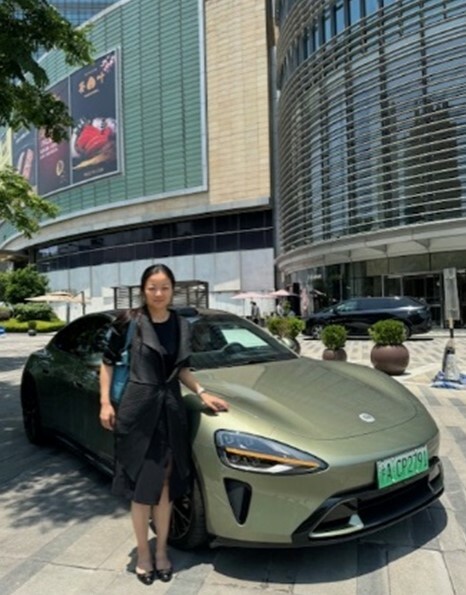 Xiaomi, has left us with a strong impression because of their optimism.
Xiaomi, has left us with a strong impression because of their optimism.
A disruptor in the crowded Chinese EV market, Xiaomi has achieved strong success on its first EV launch (March 2024). Its SU7 (BEV sedan) received over 88k lock-in orders within one month. Management reiterated their confidence in delivering 100k vehicles in 2024 and sees potential to reach 120k if capacity ramp-up is on track despite a tough operating environment. Thanks to the popularity of high-end model (43% of EV orders), a positive gross margin (5-10%) is expected for 2024 although breakeven in EV business is not an imminent priority. Management has set an ambitious long-term target to be among the global top 5 auto manufacturer and considers EV a vital part of the “Human x Car x Home” ecosystem. The latter should provide seamless connections between smartphones, AIoT devices, EVs through its operating system HyperOS, therefore strengthen customers’ stickiness.
As for its core business, Xiaomi’s strong appeal (outstanding specs and value for money features) and successful execution of premiumization strategy have helped the group to offset the lukewarm demand and intensive competitive pressure in smartphone market. With starting price at RMB1,000-2,999 for the Redmi series and RMB 3,999 for the Xiaomi series, Xiaomi has made a strategic shift (in 2020) to focus on high-end development & penetration. Today, it leads the RMB4,000-6,000 price range with 28% m/s (vs. its overall China m/s at 14%) and made significant progress in the RMB5,000-6,000 price range (10% m/s vs. 4% only in 1Q23). The success in international markets offers another solid pillar of growth (75% of 2023 shipment). As the 3rd smartphone maker in the world (14% m/s) just behind Samsung (20%) and Apple (14%), its strong foothold could be found in many places (top 3 m/s in 56 counties and regions). Management is confident in both the prospect of emerging markets and deepen market penetration. It has increased its 2024 smartphone shipment target by 5m to 160-165m units on the back of strong 1Q. Such dynamism is also shared by AIoT business (30% of 2023 revenue), the largest IoT platform globally providing 1,000+ SKUs. Its product offering includes wearables, PC& tablets, appliances, e-scooters, personal care products (e-toothbrush, smart pet fountain), etc...
units on the back of strong 1Q. Such dynamism is also shared by AIoT business (30% of 2023 revenue), the largest IoT platform globally providing 1,000+ SKUs. Its product offering includes wearables, PC& tablets, appliances, e-scooters, personal care products (e-toothbrush, smart pet fountain), etc...
As of 1Q24, Xiaomi has connected 786m devices (smartphones, tablets and laptops) globally, 27% more yoy. With an untapped international market (30% of AIoT revenue only despite its 2-3x larger size vs. China), management considers AIoT also a key growth driver and contribute positively to the margin (steady GPM expansion from 8% in 2017 to 20% in 1Q24 with further upside)
Company focus: Naura Tech (Market Cap: $24bn, sales revenue: $6bn)
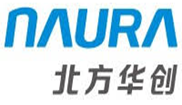 US-China geopolitical tensions have forced China to look for domestic alternatives for semiconductor equipment supply. While increasingly stringent sanctions have hindered China’s progress to the most advanced nodes, they have accelerated domestic substitution. China foundry players continue to invest heavily in matured nodes and further increase their equipment self-sufficiency ratio. This environment is especially beneficial to leading players such as Naura Tech and AMEC. The management team of Naura is very confident about the sustainability of its high growth (both revenue and earnings to grow at least 30% in 2024 and 2025). The State-Owned Enterprise, founded in 2001, is already a domestic leader in PVD (a sub sector of deposition) & ICP-RIE (a sub-sector of Dry Etch). Its market share gain should accelerate amid the new tailwind (12% share in 2023-25 vs. 7% in 2021-23). With diversified end-markets and product portfolio (across thermal process, deposition, silicon etching, and cleaning tools for semiconductor fabs), Naura has a larger total addressable market ($18bn in 2023) compared to most of its Chinese peers (mostly specialized). It continues to expand product coverage to capture more market growth as well as ongoing investment in R&D (4,000 staff today vs. 10,000 for global leading peers) to support new product expansion plans.
US-China geopolitical tensions have forced China to look for domestic alternatives for semiconductor equipment supply. While increasingly stringent sanctions have hindered China’s progress to the most advanced nodes, they have accelerated domestic substitution. China foundry players continue to invest heavily in matured nodes and further increase their equipment self-sufficiency ratio. This environment is especially beneficial to leading players such as Naura Tech and AMEC. The management team of Naura is very confident about the sustainability of its high growth (both revenue and earnings to grow at least 30% in 2024 and 2025). The State-Owned Enterprise, founded in 2001, is already a domestic leader in PVD (a sub sector of deposition) & ICP-RIE (a sub-sector of Dry Etch). Its market share gain should accelerate amid the new tailwind (12% share in 2023-25 vs. 7% in 2021-23). With diversified end-markets and product portfolio (across thermal process, deposition, silicon etching, and cleaning tools for semiconductor fabs), Naura has a larger total addressable market ($18bn in 2023) compared to most of its Chinese peers (mostly specialized). It continues to expand product coverage to capture more market growth as well as ongoing investment in R&D (4,000 staff today vs. 10,000 for global leading peers) to support new product expansion plans.
At 31.3x of 2024 PER and 23x 2025 PER, Naura trades at the lower end of its historical trading range. We do appreciate the company’s unique positioning and its earnings visibility. We have invested 2% of GemEquity, 2.5% of GemAsia, and 4.5% of GemChina in this name.
For Korean companies, the “Corporate Value Up Program” dominates the conversation. Despite the opposition party’s landslide victory in April, regulators should continue to act to structurally narrow the “Korean discount” driven by growing number of retail investors (14m vs. 6m pre-Covid) and ongoing public interest. Although the voluntary participation of corporate disclosure guidelines could slow the process, the direction seems very clear. From a legislative perspective, we expect more progress on corporate reform related to board of directors’ fiduciary duty to shareholders, as well as tax incentives (dividends credits, potential corporate tax cuts for treasury share cancellation, possible change in inheritance tax in the medium term). We also expect an improved framework for capital management with better alignment of interests between controlling and minority shareholders. In this environment, Korean banks seem attractive. They have already established such a corporate value enhancing framework. They also manage total shareholder return with a focus on share buybacks. In addition, the uncertainties related to ELS (Equity-linked securities) loss compensation are now behind us and the overseas property exposure is likely to have a limited impact on earnings for established players with strong capital positions.
Company focus: KB Financial Group (Market Cap: $23bn, Total deposits: $311bn)
 One of the largest financial institutions in Korea, KB Financials’ operations include Kookmin Bank, one of the leading commercial banks in Korea. Its subsidiaries engage in a broad range of business, including commercial banking, credit cards, asset management insurance (life and non-life) and capital markets activities. As of 1Q24, the group’s consolidated total assets amounted to $544bn, consolidated total deposits of $311bn and total equity of $42bn.
One of the largest financial institutions in Korea, KB Financials’ operations include Kookmin Bank, one of the leading commercial banks in Korea. Its subsidiaries engage in a broad range of business, including commercial banking, credit cards, asset management insurance (life and non-life) and capital markets activities. As of 1Q24, the group’s consolidated total assets amounted to $544bn, consolidated total deposits of $311bn and total equity of $42bn.
After a challenging 2023 amid heightened regulatory pressure throughout the year (reduce spreads on mortgage loans, set aside more provision through assumption adjustment, raise capital requirements, windfall tax discussion turned into a co-prosperity fund contribution…) and rapid rate hikes (+300bp hike since August 2021 to 3.5% and maintained), KB and its banking peers are now dealing with an improved environment. Thanks to healthy large corporate loan demand and delays to the rate cut expectations, NIM contraction is likely to be milder than expected and the outlook on net interest income has also improved. KB believes reported credit cost levels could finally be stabilized after years of large pre-emptive provisioning (and aggressive NPL classification). Although it will team up with 9 other large financial institutions to provide syndicated loans of 1 trillion won ($0.7bn), up to 5 trillion ($3.6bn) in additional funding for real estate development projects to mitigate the risks, the group itself has very limited exposure (95% to senior tranches and by prime assets with Samsung and Hyundai groups) and feels confident to make money on such “investment” (as the post-GFC situation).
As the first Korean bank to carry out cancellation of “existing” treasury shares in 2019, KB is determined with progressive shareholder return policies. Its fundamentals remain strong with CET1 exceeding 13% (considered to be point of excess, at 13.4%). The group aims to deliver a continued increase in dividend per share on reduced share count. Management plans to disclose detailed plan to sustainably enhance its corporate value in 4Q24. In terms of valuation, KB trades at a 2024 PER of 6.2x and PBV of 0.50. Its dividend yield amounts to 4%. GemEquity has built up a position of 1% in the stock

